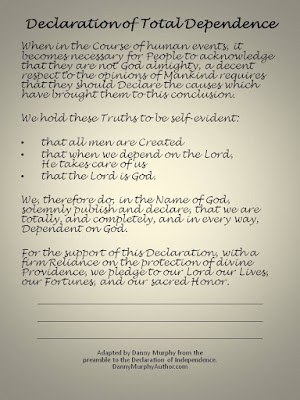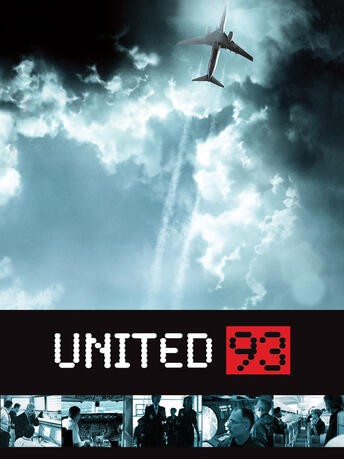 |
| This image can be printed and signed. |
When in the Course of human events, it becomes necessary for People to acknowledge that they are not God almighty, a decent respect to the opinions of Mankind requires that they should Declare the causes which have brought them to this conclusion.
We hold these Truths to be self-evident:
- that all men are Created
- that if there were no God, nothing and nobody would exist
- that when we depend on the Lord, He takes care of us
- that the Lord is God.
We, therefore do, in the Name of God, solemnly publish and declare, that we are totally, and completely, and in every way, Dependent on God.
For the support of this Declaration, with a firm Reliance on the protection of divine Providence, we pledge to our Lord our Lives, our Fortunes, and our Sacred Honor.
If you liked this, you might also like some of Danny's other writings. Check out his Amazon Author Page.
Related blog posts
The Garden of App-en
The Lord's Fishing Buddies
Prayer Wireless?
If you liked this, you might also like some of Danny's other writings. Check out his Amazon Author Page.
Related blog posts
The Garden of App-en
The Lord's Fishing Buddies
Prayer Wireless?
Adapted by Danny Murphy from the preamble to the Declaration of Independence. This piece was first published in the First Coast Community section of the Florida Times-Union website in 2005.






_(cropped).jpg/220px-Richard_Pryor_(1986)_(cropped).jpg)


















